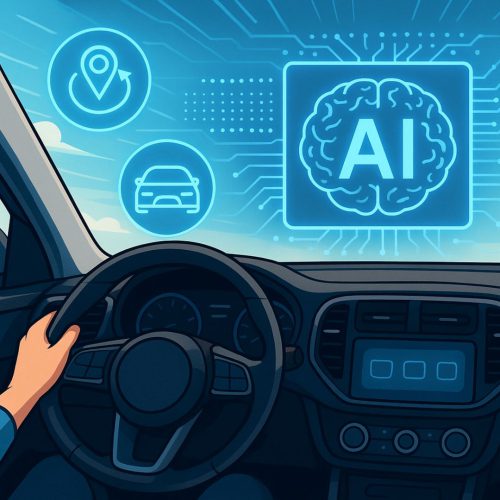Artificial intelligence is redefining how we interact with vehicles, improving comfort, safety, and satisfaction across the driving experience.
AI Reshaping the Road Ahead
AI Drives Automotive Innovation. Artificial intelligence is taking center stage in the automotive industry. According to the 2025 U.S. Tech Experience Index (TXI) Study by J.D. Power, AI-driven innovation is transforming how drivers experience their vehicles.
The study, now in its 10th year and based on feedback from over 76,000 vehicle owners, introduced a new “smart vehicle” category—highlighting AI features like predictive climate control and smart ignition systems that make driving more intuitive.
“Smart technologies anticipate the driver’s needs and reduce cognitive workload,” said Kathleen Rizk, Senior Director of User Experience at J.D. Power. “What matters most is how useful the technology is and whether it truly enhances the driving experience.”
Smarter Cars, More Satisfied Drivers
AI-powered systems are creating cars that think ahead and respond intelligently to driver habits. One standout example is smart climate control, which automatically adjusts heating and cooling to optimize comfort.
These advancements have directly improved satisfaction ratings across the Initial Quality Study (IQS) and Automotive Performance, Execution, and Layout (APEAL) Study—proof that technology is not only making driving easier but also more enjoyable.
By simplifying digital interfaces and minimizing distractions, AI helps drivers focus on the road while still benefiting from personalization and convenience.
Innovation Meets Real-World Challenges
As with any technological leap, not every feature hits the mark. The much-hyped “car wash mode”, meant to automate window closure and wiper deactivation, has proven cumbersome for many users—38% report needing better instructions or faster execution.
Meanwhile, in-vehicle payment systems are regaining traction, with 62% of drivers expressing interest in using them for tolls, fuel, and parking. Earlier versions suffered from limited functionality, but newer designs prioritize speed, simplicity, and seamless integration.
“While smart technologies aren’t perfect, they mark a major step forward,” Rizk added. “Continued refinement will be key to unlocking their full potential.”
Consumer Favorites and Top Innovators
AI Drives Automotive Innovation. Certain technologies have already captured the hearts of consumers. Blind spot cameras top the list, with 93% of drivers using them regularly and 74% wanting them in future vehicles. Beyond safety, these features also boost resale value—vehicles equipped with them tend to sell faster.
When it comes to leading brands, Genesis continues its five-year streak as the top premium innovator, while Hyundai remains the mass-market leader for the sixth consecutive year. Cadillac, Lincoln, and Kia also ranked among the front-runners.
Other standout innovations include:
- The Land Rover Defender’s air purification system, praised for comfort and convenience.
- Genesis GV80 and Hyundai Santa Fe’s digital phone keys blend security with ease of access.
- Kia EV9’s one-pedal driving feature, a favorite among electric vehicle enthusiasts.
Recognition Tech: The Next Frontier
The next big leap lies in recognition systems—including biometric authentication, touchless controls, and driver monitoring. These aim to enhance security and personalization but currently face challenges in reliability, with biometric systems reporting 29.2 issues per 100 vehicles.
Still, as automakers refine these technologies, they’re expected to redefine how vehicles recognize and interact with their occupants. The balance between innovation and simplicity will determine their success.
AI Drives Automotive Innovation. The Road Ahead
AI is no longer a futuristic concept—it’s a key player in shaping the modern driving experience. From anticipating driver needs to redefining vehicle connectivity, artificial intelligence is driving the industry toward smarter, safer, and more satisfying mobility.

